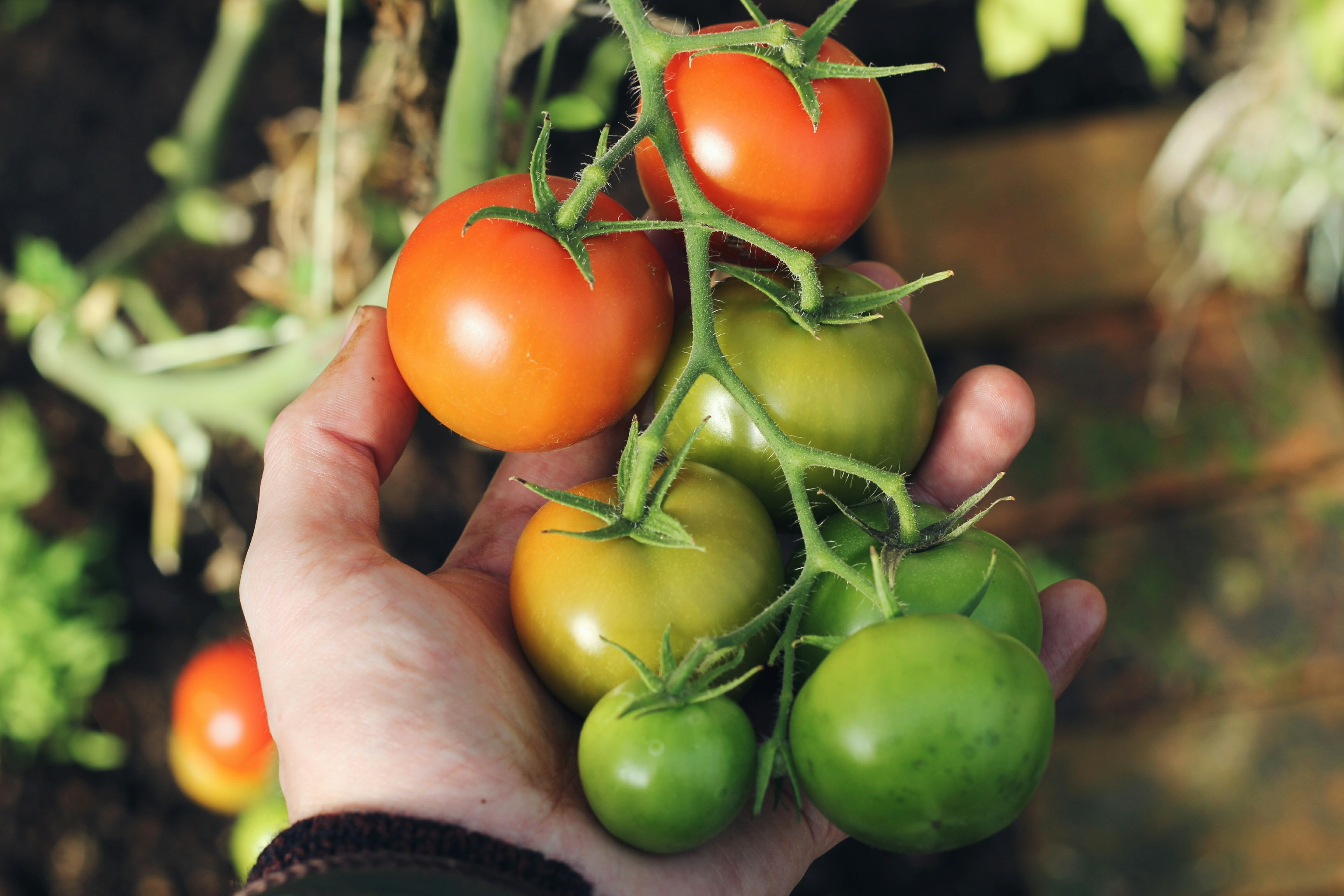Carbon capture and storage, or CCS, is one of the key tools scientists are developing to fight climate change. The idea is simple: take carbon dioxide (CO₂) from industrial sources and lock it deep underground where it can’t warm the planet. But what if that CO₂ leaks back out, and what if it starts affecting the food we grow?
A recent study shines light on a hidden risk: elevated CO₂ levels in the soil can seriously damage tomato crops. In a carefully controlled experiment, researchers mimicked a CO₂ leak from a CCS system and grew tomatoes in that environment. The results were clear and concerning. Not only did the plants produce smaller and fewer fruits, but the tomatoes also became noticeably more sour, lowering their quality and making them less appealing to eat - and less valuable to sell.
This study is one of the first to focus specifically on vegetables rather than large-scale field crops. Given that tomatoes are one of the world’s most widely grown and consumed vegetables, these findings raise new questions about the broader impact of CO₂ leaks on agriculture.
CO₂ Isn’t Always a Bad Thing - Until It Is
We often hear that CO₂ is essential for plants, and it’s true. In greenhouses, extra CO₂ is even added to boost growth and yield. But there’s a key difference between adding CO₂ to the air above the plant and injecting it into the soil below.
When too much CO₂ builds up in the soil, it displaces oxygen that roots need to breathe. This can stress the plant, slow growth, and affect how nutrients move through its tissues. Over time, this kind of stress leads to weaker plants, fewer flowers, and lower-quality fruit.
In this experiment, tomato plants grown with high levels of soil CO₂ - similar to what might happen if a CCS site leaked - produced almost half as much total biomass as those grown under normal conditions. The fruit was also affected. Tomatoes were smaller, weighed less, and had thinner flesh. This not only reduces crop yield but also affects how tomatoes are graded and priced in the market.
The Taste of Trouble: How CO₂ Changed the Flavor
The study didn’t just look at the size and number of tomatoes, it also tested how they tasted. A key measure of flavor is the sugar-acid ratio, which compares how sweet a tomato is to how sour it tastes.
Under normal conditions, tomatoes had a sugar-acid ratio close to what consumers prefer: a balance that makes the fruit taste fresh and enjoyable. But under the CO₂ leak conditions, that balance was thrown off. The tomatoes became significantly more acidic, dropping below the ideal sugar-acid ratio range.
This shift made the tomatoes taste noticeably sour, which would likely turn off consumers and reduce the tomatoes’ commercial value. Even though the sugar levels stayed about the same, the sharp increase in acid content was enough to alter the overall flavor profile.
A Hidden Threat to Tomato Farming
Tomatoes are grown in a wide variety of environments, from open fields to greenhouses, and they’re an essential part of diets worldwide. With over 177 million tons grown annually across five million hectares, any risk to their production carries serious economic weight.
This study highlights that while atmospheric CO₂ can enhance tomato growth in controlled environments, leaks of CO₂ into the soil from CCS operations can do just the opposite. Even at levels that might seem moderate, the impact on plant health and fruit quality was significant.
Interestingly, the plants didn’t show obvious signs of distress above ground. Their height stayed roughly the same. But the damage was happening quietly in the roots and the fruit, suggesting that such changes could go unnoticed until harvest time, when it’s too late to act.
Lessons for the Future of Climate Tech and Agriculture
The message from this study is not that carbon capture and storage should be abandoned - it’s a promising tool for reducing emissions. But it does highlight the importance of monitoring and managing the risks. If CO₂ leaks from storage sites, it may not only affect local ecosystems but also harm nearby farmland, especially crops like tomatoes that are sensitive to soil changes.
Farmers, engineers, and policymakers need to work together to ensure that climate solutions don’t unintentionally create new agricultural problems. That includes monitoring CO₂ levels in the soil near CCS sites, understanding which crops are most vulnerable, and developing strategies to prevent or respond to potential leaks.
For now, tomatoes offer a clear warning. Too much CO₂ in the wrong place can turn a healthy, flavorful harvest into a sour disappointment. With the right planning and oversight, we can keep both our climate and our crops safe.


